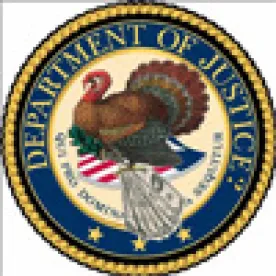In recent months, the US Department of Justice (DOJ) has issued new guidance on two distinct topics: how to evaluate corporate compliance programs[1], and how to award “cooperation credit” to defendants that co-operate during a False Claims Act (FCA) investigation.[2]
Corporate Compliance Programs
Under the Justice Manual, federal prosecutors should consider “the adequacy and effectiveness of [a] corporation’s compliance program” when investigating, determining whether to bring charges and negotiating plea deals with corporations.[3] Prosecutors should also consider the corporation’s remedial efforts “to implement an adequate and effective corporate compliance program or to improve an existing one.”[4] Even for purposes of calculating the appropriate criminal fine, the US Sentencing Guidelines recommend consideration of whether the corporation had an effective compliance program in place at the time of the misconduct. [5]
On April 30, 2019, DOJ’s Criminal Division released a guidance document for prosecutors entitled “The Evaluation of Corporate Compliance Programs.”[6] This guidance updates a previous version issued by the Criminal Division’s Fraud Section in February 2017. With this new guidance, DOJ intends to better align its corporate compliance guidance with other DOJ guidance and provide a factor-driven path for pros-ecutors to analyze a company’s compliance program. [7]
Under the new guidance, when analyzing a corporation’s compliance program, a prosecutor should ask three questions: Is the corporation’s compliance program well designed? Is it implemented effectively? And, does it work in practice? Within these questions, the guidance suggests 12 factors that prosecutors should evaluate when considering how to answer the fundamental questions.
1. Is the Corporation’s Compliance Program Well Designed?
- Risk Assessment: DOJ considers whether the program is properly designed to detect specific misconduct and how the company’s compliance program has been tailored based on the company’s risk assessment.
- Policies and Procedures: DOJ considers the design, comprehensiveness and accessibility of company policies, as well as effective operational integration and company over-sight of important compliance gatekeepers.
- Training and Communications: DOJ considers whether appropriate risk-based training has taken place, what guidance is available to employees, and whether senior management has effectively communicated the company’s position on misconduct.
- Confidential Reporting Structure and Investigations Process: DOJ considers the effectiveness of the company’s reporting system and whether the scope of, response to, and tracking of company investigations ensures accountability.
- Third-Party Management: DOJ considers whether the company applied risk-based due diligence to its third-party partners, including agents, consultants and distributors. This due diligence may include ensuring that appropriate controls, monitoring and consequences are in place for third parties.
Mergers and Acquisitions: DOJ considers whether the company conducted comprehensive due diligence of any acquisition targets.
2. Is the Corporation’s Compliance Program Being Implemented Effectively?
- Commitment by Senior and Middle Management: DOJ considers whether senior leaders encourage compliance and whether the board of directors and external auditors have sufficient oversight authority.
- Autonomy and Resources: DOJ considers whether those in charge of the company’s compliance program act with adequate authority. DOJ considers where within the company the compliance function is housed, the experience of the compliance team, whether the program has adequate funding and whether the compliance team has sufficient autonomy.
- Incentives and Disciplinary Measures: DOJ considers whether a company establishes sufficient incentives for compliance and disincentives for non-compliance. DOJ also considers whether human resources is involved in the disciplinary process and whether disciplinary actions are applied consistently.
3. Does the Corporation’s Compliance Program Work in Practice?
- Continuous Improvement, Periodic Testing and Review: DOJ evaluates whether the compliance program evolves and improves, considering the frequency and effectiveness of internal audits, whether the compliance program has been control tested, and whether the company has facilitated a culture of compliance.
- Investigation of Misconduct: DOJ considers whether the company timely and thoroughly investigates allegations of misconduct and whether qualified personnel conduct those investigations.
- Analysis and Remediation of Any Underlying Misconduct: DOJ assesses the effectiveness of the company’s response to findings of misconduct, including whether a root cause analysis is performed or prior weakness identified, what changes are made to reduce risk of a similar event in the future, and what disciplinary actions the company takes in response to misconduct.
PRACTICE NOTE: Corporate compliance teams should review this new guidance and, where appropriate, consider implementing appropriate changes to company policy to ensure that adequate controls are in place and to minimize the risk of future criminal liability.
Cooperation Credit
On the heels of announcing new guidance regarding corporate compliance, DOJ’s Civil Division announced new formal guidance on awarding “cooperation credit” on May 7, 2019.[8] This guidance is also in the Justice Manual and applies when an entity or individual voluntarily discloses conduct that could serve as the basis for an FCA investigation. In describing the new guidance, Assistant Attorney General Jody Hunt explained that “False Claims Act defendants may merit a more favorable resolution by providing meaningful assistance to the Department of Justice—from voluntary disclosure, which is the most valuable form of cooperation, to various other efforts, including the sharing of information gleaned from an internal investigation and taking remedial steps through new or improved compliance programs.”[9]
Under the guidelines, an entity or individual may be awarded cooperation credit for (1) voluntarily disclosing misconduct unknown to the government, (2) cooper-ating in an ongoing investigation or (3) undertaking remedial measures in response to a violation. Under the first category, an entity or individual will be awarded cooperation credit during an investigation if it makes a “proactive, timely, and voluntary self-disclosure.”[10]
An individual or entity may earn cooperation credit under the second category if it cooperates with the government during an investigation. Specifically, the guidelines articulate 10 examples of cooperation that could receive credit, including:
- “Identifying individuals substantially involved in or responsible for the misconduct”
- “Disclosing relevant facts and identifying opportunities for the government to obtain evidence relevant to the government’s investigation that is not in the possession of the entity or individual or not otherwise known to the government”
- “Preserving, collecting, and disclosing relevant documents and information relating to their provenance beyond existing business practices or legal requirements”
The guidelines make clear that these are illustrative only; none of the examples articulated in the Justice Manual are mandatory to receive cooperation credit, nor is the list all-inclusive of potential conduct that could result in cooperation credit.
In considering the value of a voluntary disclosure (category 1) or cooperation during an ongoing investigation (category 2), prosecutors are to consider four factors: “(1) the timeliness and voluntariness of the assistance; (2) the truthfulness, completeness, and reliability of any information or testimony provided; (3) the nature and extent of the assistance; and (4) the significance and usefulness of the cooperation to the government.”[11]
Under the third category—undertaking remedial measures in response to a violation—an individual or entity may receive cooperation credit for appropriate remedial actions in response to an FCA violation. These actions could include remediating the root cause of the conduct, implementing or improving a compliance program, or removing those responsible for the misconduct.[12] The guidance provides that the maximum credit an individual or entity may receive may not result in the government receiving less than “full compensation for the losses caused by the defendant’s misconduct.”[13]
PRACTICE NOTE: The recent guidance provides insight into DOJ’s approach to cooperation credit and may be used by defense counsel in negotiating cooperation credit in an FCA investigation. The guidance does not alter the highly discretionary nature of cooperation credit, however. Application of the guidance will depend heavily on the facts of the matter and the DOJ prosecutor assigned to a case.
[1] See Press Release, US Dep’t of Justice, Criminal Division Announces Publication of Guidance on Evaluating Corporate Compliance Programs (Apr. 30, 2019)
[2]See Press Release, US Dep’t of Justice, Department of Justice Issues Guidance on False Claims Act Matters and Updates Justice Manual (May 7, 2019).
[3] US Dep’t of Justice, Justice Manual, § 9-28.300, https://www.justice.gov/jm/jm-9-28000-principles-federal-prosecution-business-organizations#9-28.300.
[4] Id.
[5] See USSG §§ 8B2.1, 8C2.5(f), and 8C2.8(11), https://www.ussc.gov/sites/default/files/pdf/guidelines-manual/2018/GLMFull.pdf.
[6] See Press Release, US Dep’t of Justice, Criminal Division Announces Publication of Guidance on Evaluating Corporate Compliance Programs (Apr. 30, 2019); US Dep’t of Justice, Criminal Division, Evaluation of Corporate Compliance Programs (Apr. 2019).
[7] US Dep’t of Justice, Criminal Division, Evaluation of Corporate Compliance Programs (Apr. 2019)
[8] See Press Release, US Dep’t of Justice, Department of Justice Issues Guidance on False Claims Act Matters and Updates Justice Manual (May 7, 2019), https://www.justice.gov/opa/pr/department-justice-issues-guidance-false-claims-act-matters-and-updates-justice-manual; and US Dep’t of Justice, Justice Manual, at 4-4.112 – Guidelines for Taking Disclosure, Cooperation, and Remediation Into Account in False Claims Act Matters, https://www.justice.gov/jm/jm-4-4000-commercial-litigation#4-4.112.
[9] See Press Release, US Dep’t of Justice, Department of Justice Issues Guidance on False Claims Act Matters and Updates Justice Manual (May 7, 2019), https://www.justice.gov/opa/pr/department-justice-issues-guidance-false-claims-act-matters-and-updates-justice-manual.
[10] US Dep’t of Justice, Justice Manual, § 4-4.112, https://www.justice.gov/jm/jm-4-4000-commercial-litigation#4-4.112.
[11] Id.
[12] Id.
[13] Id.









 />i
/>i

